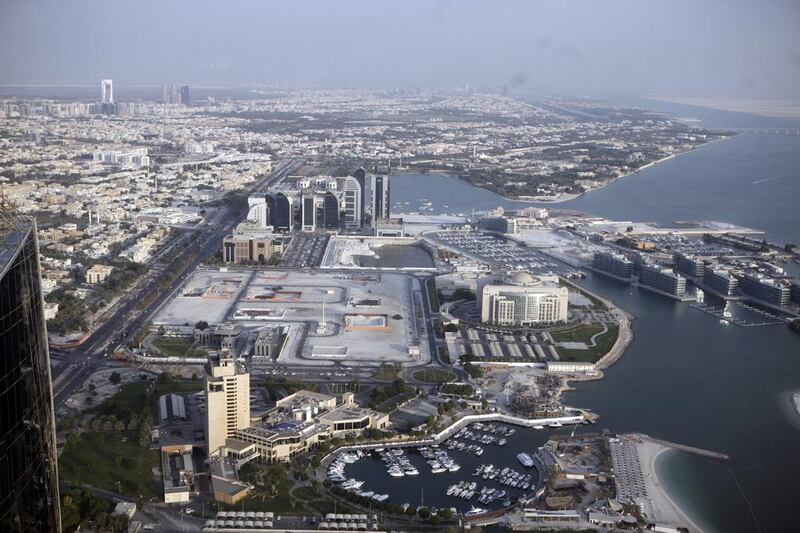Most maps clearly show the land boundaries of a country, but seldom show the lines enclosing territorial oceans around the world.
Yet use of waters under national jurisdiction need as much planning as land.
The UAE’s territorial waters contribute 68 per cent of the country’s gross domestic product.
At the Abu Dhabi Maritime 2030 Charette on Monday, experts and government workers involved in marine spatial planning (MSP) unveiled a draft map that allocates different parts of the emirate’s territorial ocean for different uses.
“This maritime project is part of the 2030 Vision and takes into consideration the economic and environmental considerations by providing evidence and findings from our field work,” said Ibrahim Al Hmoudi, planning manager of the Urban Planning Council and project director of Plan Maritime 2030.
An integral use of MSP is to inform governments and stakeholders of the consequences of allocating waters to certain uses, most of which is concerned with the trade-off between economic benefits and conservation.
Abu Dhabi waters are the second-largest home to dugong in the world and the nesting grounds to some critically endangered species of turtles, seabirds, fish and corals.
“We want to be aware of what is out there in the marine environment so that if we choose to protect it today we know what we are protecting, or if we choose to develop these areas we know what we are losing and the value of it,” said Charles Ehler, president of Ocean Visions Consulting.
Mr Ehler, also an MSP consultant with Unesco’s Intergovernmental Oceanographic Commission, is widely considered a leading figure in the field.
Fortunately for Abu Dhabi, he said, certain parts of the ocean were ideal for certain types of socio-economic activity.
Through plans such as Abu Dhabi Maritime 2030, conservation efforts need not always require an economic sacrifice.
Mr Ehler, whose work on MSP with the Intergovernmental Panel on Climate Change helped it to win the Nobel Peace Prize, highlighted the expected growth of the maritime economy by more than 60 per cent.
He explained how environmentally conscious planning would be crucial for the development of Abu Dhabi and the world’s growing economies.
“The maritime domain of almost all countries, but particularly here, is a very busy place and becoming busier every year,” Mr Ehler said.
“So we need to think about what are we losing if we do nothing. If we develop the marine environment as a terrestrial industrial park a lot of the natural environment will not survive.”
Senior executives from the three main agencies responsible for Plan Maritime 2030 – the Maritime Security Executive Council, Environment Agency Abu Dhabi and the UPC – attended the opening ceremony of the three-day event to report findings and plans.
“The success of a fruitful life to the residents of Abu Dhabi is linked directly to the safe and sustainable maritime environment,” said Brig Ali Al Ahbabi, director of the Office of the Deputy Supreme Commander of the Armed Forces, which is in charge of the Maritime Security Executive Council.
“The maritime project aims at the sustainable development of the coastal areas.”
After the launch of Plan Maritime 2030 last year, the project team has been coordinating wide-ranging scientific and socio-economic research on the emirate’s coastline and its marine areas, to prepare a coastal and marine plan that will be the first of its kind in the region.
Plan Maritime 2030 is the fourth framework plan to be prepared, and will complement Plan Capital 2030, Plan Al Ain 2030 and Plan Al Gharbia 2030 in supporting the goals of the emirate’s Vision 2030.
The next gathering for Plan Maritime 2030 will be in September.
nalwasmi@thenational.ae





